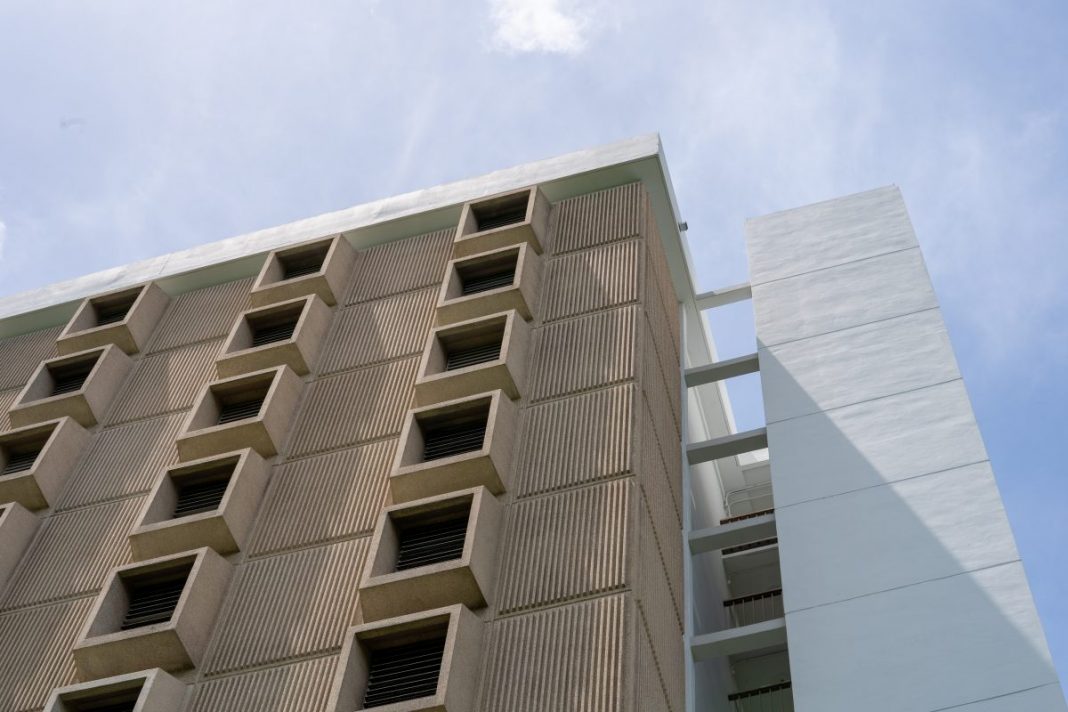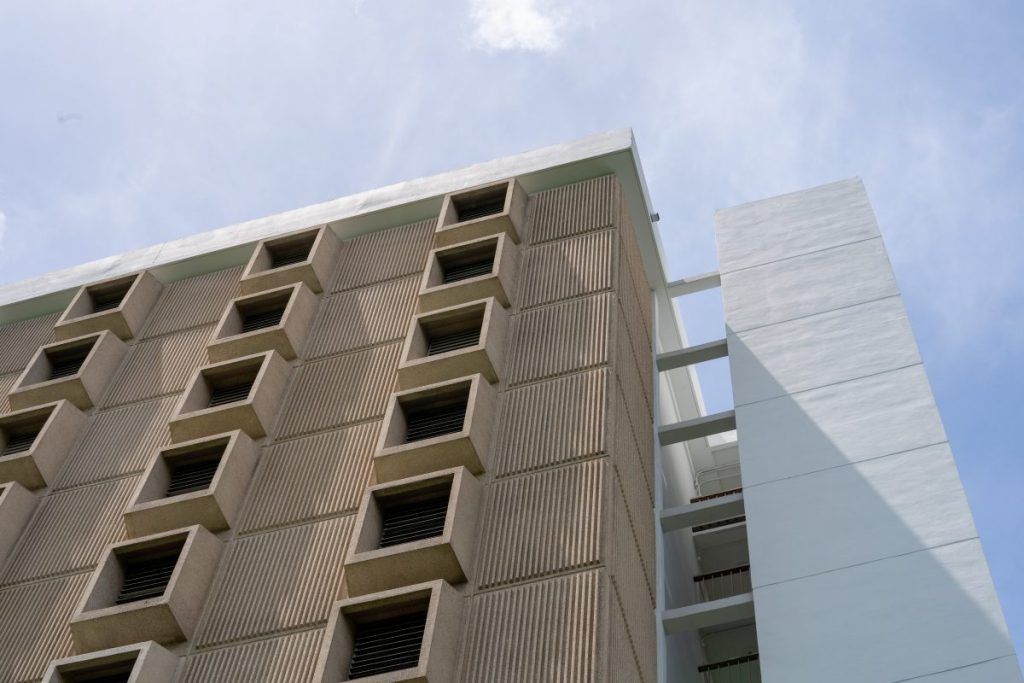
On Thursday, Sep. 9, the residents of McDonald and Rosborough Towers on UM’s Coral Gables campus were informed they would be required to test for COVID-19 after traces of the coronavirus were found in the dormitory’s sewage. Just four days later, residents of Walsh Tower received a similar email informing them that they too had to test for COVID-19 after their sewage also showed traces of the virus.
“As a result of the university’s wastewater sampling efforts, you are required to take a COVID-19 test today, Sept. 9 or tomorrow, Sep. 10, regardless of your vaccination status,” said a message from the UM Office of Student Affairs to Rosborough and McDonald Tower residents.

Walsh Tower residents were tested on Sep. 13 and 14.
Residents were to get tested on Sept. 9 or 10 and again five days after their initial test. On Thursday, Sept. 16, the last of the students living in Rosborough and McDonald Towers will be given follow up tests. Students living in Rosborough will be tested again by Sunday, Sept. 19.
The university’s wastewater sampling system can detect COVID-19 up to four days prior to a person testing positive for the illness. Using this technology, wastewater is sampled from campus buildings to both predict and detect areas on campus that could see an outbreak.
This technology, which the university has been using since the fall of 2020, is funded by a $5 million dollar, two-year grant from the National Institute of Health (NIH) as a clinical trial within the Rapid Acceleration of Diagnostics program. The goal of this NIH program is to test new technologies that can aid a safe return to in-person instruction across the country. Cornell University is a co-recipient of this grant and is testing the same technology on their campus.
“This is a proactive approach to tracking and testing that assists in preventing any potential outbreak that could have a negative impact on the university community,” said Erin Kobetz, vice provost for research and scholarship at UM and a leader of the university’s COVID-19 testing, tracking and tracing efforts.
Makeda Brown, a freshman residing in Rosborough Tower, said that she did not consider the email significant to her and other residents.
“I didn’t read it fully,” Brown said. “I just saw that we had to get tested and so went and got tested.”
Although Brown said that she was not surprised by her building’s need to get tested, she has not yet heard of any positive tests within her dormitory.
Tommy Simpson, a freshman residing in Walsh Tower, tested positive for the virus in late August just days after arriving on campus for the fall semester. Simpson, who was symptomatic despite being vaccinated, said that he would never have known that he was infected with the virus had he not been showing symptoms.
“I’m surprised more people haven’t had it,” Simpson said. “The problem I think the university is going to run into is that a lot of vaccinated people will be asymptomatic. I think kids will be surprised they tested positive.”
Although Simpson says that there has been some skepticism and frustration from his peers regarding the testing system, he has faith in the choices of UM’s administration and their COVID-19 response.
“If there’s anyone to trust in the area of health I think it’s President Frenk,” Simpson said. “It’s experimental and it’s going to be controversial to some people and some people aren’t going to want to be the guinea pigs but at the end of the day I trust the President and his judgment.”






